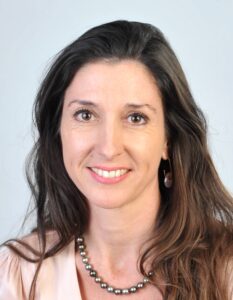Accounting and Company
The Accounting & Society group brings together MRM's research professors and doctoral students working in the fields of accounting, management control and auditing.
The group is led by Sophie SPRING and Géraldine RIVIERE-GIORDANO. It meets monthly to present research work on the following main themes:
- Controlling and strategic processes
- French and international accounting standards
- Non-financial/sustainability reporting: quality, verification, determinants, institutional logic, issues raised by ongoing European and international standardization(EFRAG, ISSB)
- Global performance: SMEs, accounting firms, financial institutions
- Accounting choices and earnings management for listed companies
- Sector specializations: healthcare, public organizations, arts and culture, agri-food, innovative start-ups
The members of the Comptabilités & Société group are involved in a number of scientific associations, the main ones being the Association Francophone de Comptabilité(AFC), the European Accounting Association (EAA), the Center for Social and Environmental Accounting Research (CSEAR)...
The members' work is also supported by the Labex Entreprendre Axe 2 program 1 "Standards, Innovation and Responsible Management", the Responsible Management and Entrepreneurship Chair(MER) and the Sustainability, COmptability & REporting Chair(SCORE).
Research topics
The MRM Accounting and Society Group focuses its work on four areas. Axes 1, 2 and 3 are rooted in areas of expertise that have already been consolidated and given rise to classified publications. Axis 4 is an emerging theme corresponding to as yet unpublished research, which is also in demand on the widerMUSE I-site, of which we are a part. The common thread running through all these areas is the need to examine concepts and practices in financial accounting, management control and auditing, with the overarching aim of integrating accounting into society.
Theme 1: Reporting, Steering & Corporate Social Responsibility (CSR)
Accounting in its broadest sense covers both the production and use of regulated or voluntary information distributed to third parties, and the design of steering tools for internal management. These different aspects are examined. Some of the research focuses on how organizations prepare CSR reports - and in particular accounting data or dedicated sustainability balance scorecards (BSCs) - how auditors assess these reports, and how investors use these reports according to their level of certification. The study of tax evasion practices by multinational groups, seen as an unresponsible practice, was also carried out in relation to the level of CSR reporting that these same firms have been developing for several years.
The reconciliation of economic imperatives and social well-being (humanly responsible control between tension and support) is also a path that is being explored in view of society's aspirations. One of the relays of this logic is the chartered accountant for a majority of companies. In conjunction with the partnerships of WOAgri's Audit-Control-Finance division, we will examine the penetration of this theme in the accounting profession, through its implementation within firms and in the assignments they can offer their clients (case studies).
Theme 2: Reporting, Steering & Public Management
Without excluding the previous theme, several research projects are developing around the study of BSCs in public hospitals and universities. This involves questioning the role of management tools as a boundary object in a professional bureaucracy, or exploring the study of the strategy map as a representation of a business model focused on a mission of general interest. Reporting practices are examined in complex, hybrid public-sector organizations - such as arts and cultural organizations like the Scènes nationales.
Beyond New Public Management, the question of governmentality in a society of control and mistrust looms larger in our hypermodern societies. At a time of digital transition, " smart cities ", e-health, platforms, algorithms, big data, etc., these questions arise in connection with managerial issues that echo current scientific questions.
Theme 3: Reporting, Steering & Governance
Considerations in axis 3 lead us to revisit governance mechanisms: governance in the digital age, governance by numbers, algorithms, rankings, etc. The governance of "smart cities" or "smart territories". From an intra-organizational perspective , we come back to the generic issue of management control.
From a perspective more external to the organization, several studies examine the role of accounting information in the firm's external governance systems (for example, the impact of the new IFRS standards in the banking sector).
Closely linked to the other areas of focus are questions about the link between accounting manipulation of earnings, the recognition of R&D expenditure and management remuneration, and the recognition of wine inventories as current assets, even though their value is often determined by the length of time they have been held... These seemingly technical questions are about what the organization says about itself through its accounting information, and what use can be made of it.
Theme 4: Reporting, Steering & Innovations
This area aims to develop the study of management control and reporting systems in the context of entrepreneurial and innovative organizations, particularly start-ups, or the study of digital management control systems in the collaborative economy (Airbnb case study). In addition, the concepts of interactive control, enabling control, ambidextrous control, etc. will be explored in greater depth. The articulation of BSC, Strategy Map and Business Model within a strategic control package is an avenue worth exploring. The introduction of new management system standards (e.g. ISO 26000 on CSR, which overlaps with axis 1) is studied from the angle of the associated organizational changes, the role of the various players involved in regulating these standards and their dissemination in the economy. Similarly, the standardization (or lack of standardization) of carbon accounting at international level is a subject of research as a recent innovation in the field of reporting.
Finally, the digitalization of banking raises a host of questions: how can we manage this "Data Driven" performance? How do digital technologies change control systems? What are the challenges of organizational change? What social and environmental issues arise in the course of digitization, and how can they be integrated into control systems? What critical perspectives can be applied to explore the dark and unexpected sides of digitization?"
Permanent members
- AUGE Bernard
- BARREDA Marlene
- BENOIT Benjamin
- CHABIN Yann
- CHAPELLIER Philippe
- CHAUVEY Jean-Noël
- DUMAS Guillaume
- EGGRICKX Ariel
- FEGER Clément
- GEORGE Alain
- GEORGESCU Irène
- GILLET-MONJARRET Claire
- GIORDANO-SPRING Sophie
- LEJARD Christophe
- LUU NHUOC SERAN Thuy
- MANNARINI Michel
- MASSOT Véronique
- MAURAND-VALET Anne
- MAURICE Yao
- MAZARS-CHAPELON Agnès
- NARO Gerald
- PLATET-PIERROT Françoise
- RIVIERE-GIORDANO Géraldine
- SEGURA Nancy
- VILLESEQUE-DUBUS Fabienne
Associate members
- BESSIEUX-OLLIER Corinne
- CHEHIMI Melinda
- COLON Marine
- DUPUY Yves
- GUERIN-SCHNEIDER Laetitia
- LACROIX Monique
- LAGUIR Issam
- LI Li
- LOUBET Guylaine
- SENN Juliette
- TRABELSI Raoudha
Doctoral students
- AUSSENAC Sarah
- BALDE Mamadou
- BELAZIZ Sarah
- EL HELOU Carine
- FOURNIER Mélanie
- GUY Romain
- MATHIEU Sandrine
- NASFI Ala
- NOUBON YEO René
- PINCHON Arnaud
- RAPPETTI Nicola
- SOUMARE Ousmane
- TAKOUR Wanny
- VERNHET Alexandre
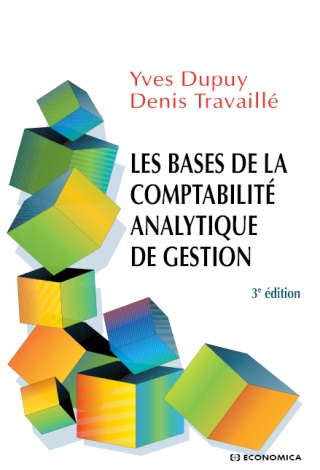
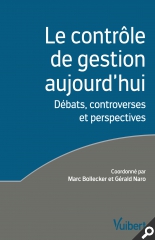
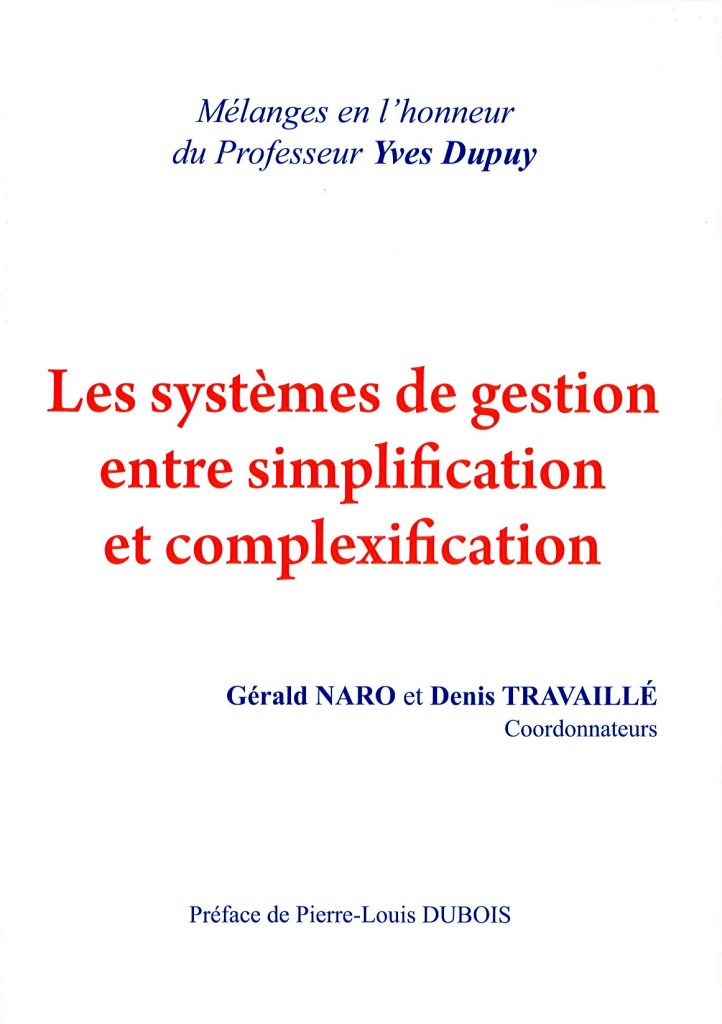
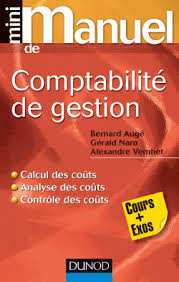
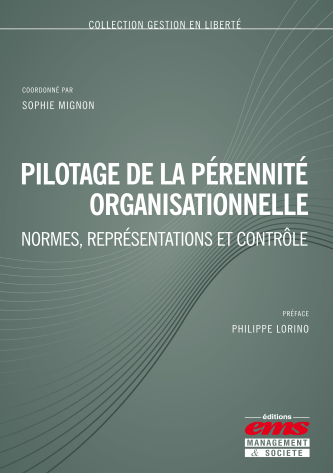



Events
The Comptabilités et Société group took part in the 44th congress of the Association Francophone de Comptabilité, organized by the IAE Lyon School of Management, from May 30 to June 1, 2023.
Useful links
The group's researchers are members of the Association Francophone de Comptabilité (AFC), and attend conferences organized by the European Accounting Association (EAA) and the American Accounting Association (AAA).
https://www.afc-cca.com/
https://www.eaa-online.org/
https://aaahq.org/

